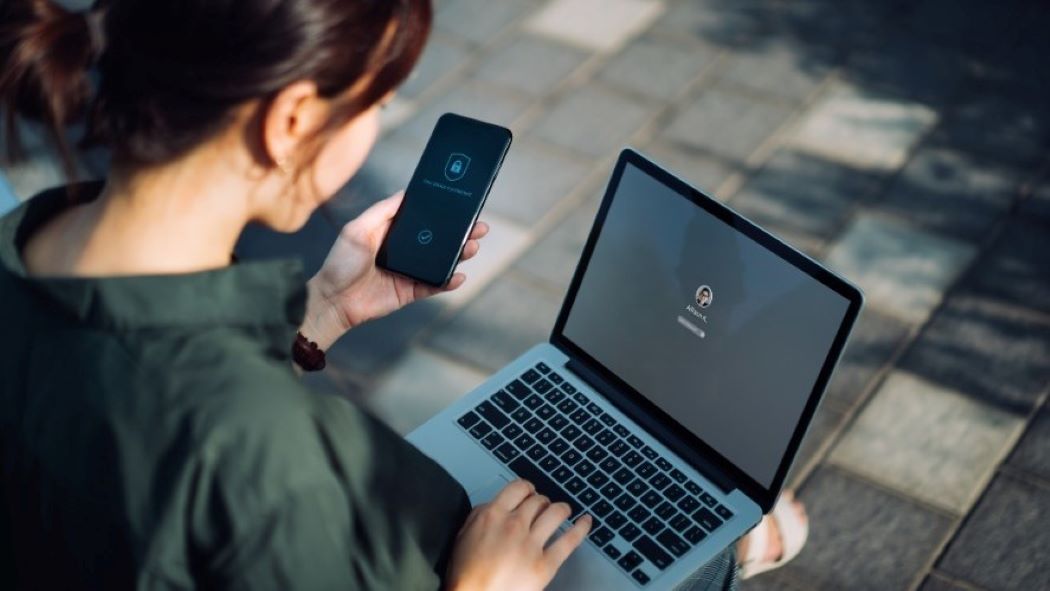Identity theft can have an enormous toll on a person’s emotional, mental, and even physical health. Read on for tips on how to protect yourself.

Identity theft remains a persistent and costly problem. But what many don’t consider is the enormous toll it can take on a person’s emotional, mental, and even physical health.
One report from the Identity Theft Center showed that its victims experience high levels of stress and anxiety, including physical symptoms, such as aches and pains, heart palpitations, stomach issues, and sleep disturbances. Nearly 10% reported the effects were so bad they could not go to work.
For many victims of identity theft, the fallout can seem never-ending. According to the SANS Institute, it can take a victim up to 600 hours to undo the damage done by thieves. For some, it’s taken years.
“Many of us don’t think about identity protection when we consider ways to maintain and improve whole-person health,” said Bruce Grimm, Cigna’s senior vice president, U.S. Markets. “Providing peace of mind to those we serve includes financial and emotional well-being support. That’s why we will be including a new identity theft protection benefit for our small-to-midsize clients in 2022.”
Cigna’s latest 360 Well-Being Survey showed that in 2020, financial health – one of the five dimensions of whole-person health – was the most negatively affected during the pandemic, even more so than physical, emotional, environmental, and social health. With so much continued uncertainty, many people remain concerned about their longer-term financial commitments, such as their ability to pay for their children’s education, make their mortgage payments, or save for retirement.
And as financial worries increased, the pandemic also led to more scams than any other event in the last 10 years. That includes nearly 1.4 million reports of identity theft in 2020, about twice as many as the prior year, according to the Federal Trade Commission. One recent study from Javelin Strategy & Research put the total cost of identity fraud at $56 billion in 2020, with the bulk of it originating from scams where criminals directly contact unwitting victims.

Identity Matters: Protecting Privacy and Security
We're here to provide you with award-winning identity theft protection built to proactively monitor, alert, and help fix any identity theft compromises. Download the brochure for more information.
Against that backdrop, identity theft protection can help shore up a person's financial health, giving them much-needed peace of mind. Read on for tips on how to protect yourself.
Create Strong Passwords
This may be one of the most basic pieces of advice, but too many of us revert to the same passwords or go with the obvious: “password123.”
It’s better to make passwords longer, create different passwords for each account, and consider using a password manager.
Check out this video for more tips on creating a password that isn’t easily hackable.
Be Aware of Phishing Scams
People continue to be duped by fake emails and texts that appear to be coming from legitimate companies, such as your bank or a store where you like to shop. The FBI’s Internet Crime Complaint Center reported that more than 241,000 people lost more than $54 million to phishing schemes in 2020.
The most important thing to do is to think before you click. Look closely at a sender’s email and address. If you are not sure if the email or text is legitimate, call the business to confirm that it sent the communication to you.
Watch this helpful video for more on how to avoid phishing scams.
Safeguard Your Social Security Number
Your social security number is the key to your financial information, opening the door for thieves to take out bank accounts and credit cards in your name. So keep your social security card in a safe place. Never carry it in your wallet. Be sure to shred any documents that contain the number. And never, ever give your social security number to someone who calls you out of the blue and says they’re from a government agency.
Check out this video for what to do if your social security card is lost or stolen.
Monitor Bank and Credit Card Statements
Credit and debit card numbers can be stolen from unsecured websites, so only give your credit card number to reputable businesses. Be cautious when responding to special offers. And be sure to review your bank and credit card statements regularly to look for unauthorized transactions.
Watch this video to learn more about what to do if you lose your credit card.
Be Mindful of Your Medical Information
Medical identity theft is another all too common form of fraud that occurs when your personal information is taken to obtain medical care for someone else. And scams have proliferated during the pandemic.
So it’s important to regularly check the explanation of benefits statement to make sure that all charges billed to your insurance company were incurred by you.
Watch this video to find out who’s most at risk and how to avoid becoming a victim.
Do Some Research Before You Donate
Stories of people who are in dire need can tug at heartstrings. But if you open your wallet to help, make sure that the charity is legitimate. Fake charities have emerged as one of the more popular ways to dupe people into giving up their personal information.
Watch the video below for tips on how to avoid them.
Keep Your Personal Information Private
We all know people who like to share their every move on social media. Heck, we may be one of those people. But scammers can use that information to set up fake accounts under your name.
Be careful about the information you share, and be sure to adjust the settings on your social media accounts to make sure that only those you know can see your posts.
Watch this video for tips on how to protect your accounts.
Install and Update Security Software on Your Computer
Malware, or malicious software, can steal personal information from your computer or mobile device. It’s far easier to protect your computer from malware than it is to remove it after it’s been infected. And with so many people still working from home, it’s important to keep your work computers secure as well.
Watch this video for more security tips while working from home.
Help Protect the Elderly
According to the FBI, millions of elderly Americans fall victim to fraud every year, from scams involving romance and government impersonators to those involving home repairs and caregivers.
Seniors can be more vulnerable to scams. They can be more trusting. They often have financial savings. And they can be the least likely to report fraud. So it’s important for seniors to be cautious of unsolicited offers. Never share personal information to unverified people or businesses.
Watch this video for more on how to prevent senior identity theft.
Look After Children
Social security cards are often issued shortly after a child is born, and that nine-digit number can be used by a thief to create a whole new identity that could go undetected until you start receiving debt collection notices in your child’s name.
So it’s important for parents to keep track of where their child’s personal information is stored. Limit the number of people who have access to information about your child. Talk to your kids about staying safe while online. And be sure to review the privacy settings on their devices.
Watch this video for tips on how to protect your child from identity theft.
“Identity theft can affect so many people in so many ways, so it’s important to stay vigilant,” Grimm said. “At Cigna, our mission is to improve the health, well-being, and peace of mind of those we serve, and helping people to protect themselves from identity theft goes a long way toward achieving that.”

Identity Matters: Protecting Privacy and Security
We're here to provide you with award-winning identity theft protection built to proactively monitor, alert, and help fix any identity theft compromises. Download the brochure for more information.